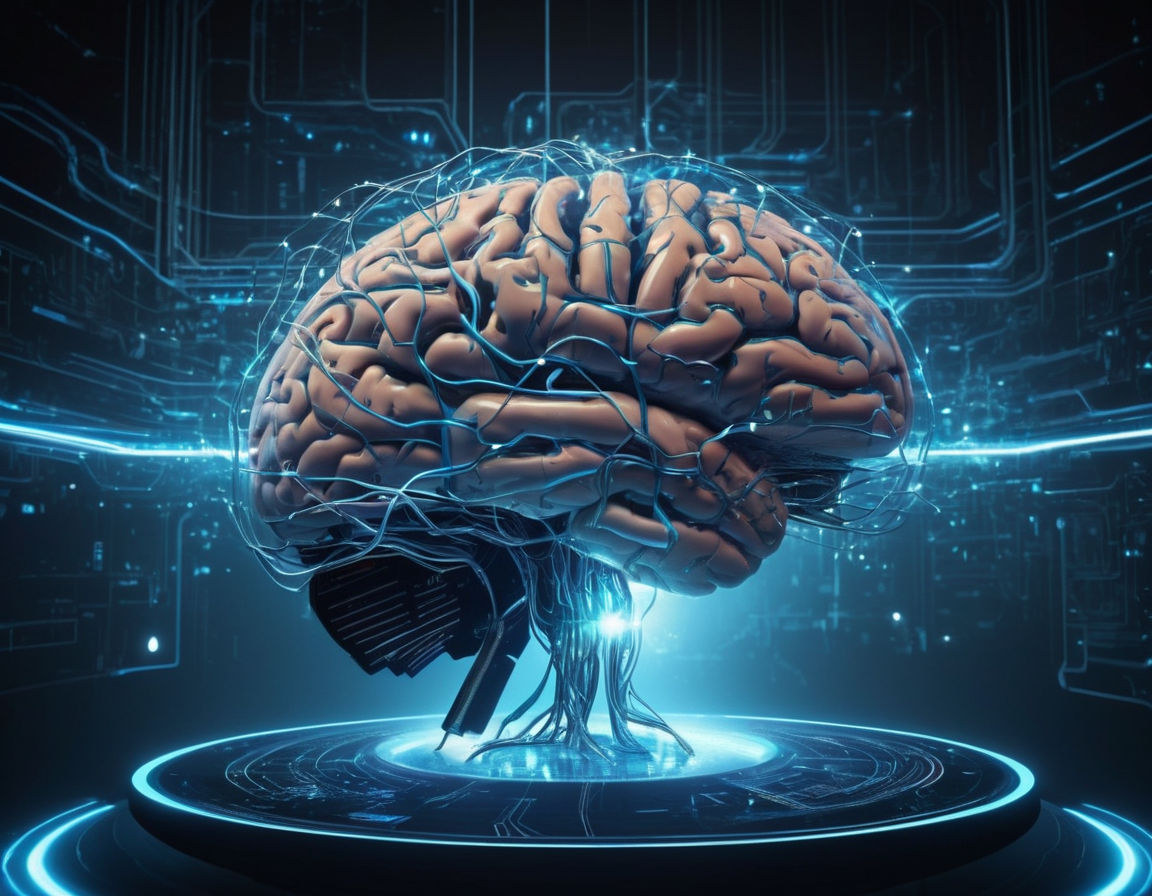Introduction
Video games have become more than just a form of entertainment; they are now recognized for their potential to enhance cognitive skills. In this article, we will explore the influence of gaming on cognitive skills, focusing on how activities in this digital realm can positively impact problem-solving, attention, and spatial reasoning. By delving into the world of gaming and cognition, we aim to shed light on the benefits and potential drawbacks associated with this increasingly popular form of recreation.
Understanding Cognitive Skills
Cognitive skills encompass a range of mental abilities that enable individuals to process information, learn, and solve problems effectively. These skills play a crucial role in our daily lives, education, and professional endeavors. By honing cognitive skills, individuals can navigate complex tasks with more ease and fluidity, leading to improved overall performance.
In this blog post, we will focus on three key cognitive skills:
Problem-solving: the capacity to identify issues, analyze them, and devise practical solutions.
Attention: the ability to focus and sustain concentration on a task or stimulus.
Spatial reasoning: the skill of visualizing and manipulating spatial information to solve problems.
The Relationship Between Gaming and Cognitive Skills
The connection between gaming and cognitive skills has garnered significant interest in recent years. Research indicates that engaging in video games can have a notable impact on various cognitive abilities. Contrary to the common misconception that gaming solely promotes mindless activity, certain games are designed to stimulate the brain and enhance cognitive functions.
Studies have shown that gaming can:
Improve problem-solving abilities by presenting players with challenging scenarios that require strategic thinking and decision-making.
Boost attention span through interactive gameplay that demands continuous focus and quick reactions.
Enhance spatial reasoning skills by offering environments that require players to navigate and manipulate objects in three-dimensional space.
By immersing oneself in game-based learning experiences, individuals can potentially develop mental agility and foster a deeper understanding of cognitive tasks. However, it is essential to approach gaming with moderation, considering potential drawbacks such as addiction and excessive screen time.

Benefits of Gaming on Cognitive Skills
Video games have shown to have a significant impact on cognitive skills, offering various benefits beyond sheer entertainment. Let's delve into how gaming can actively contribute to enhancing different cognitive abilities:
Attention and Focus Enhancement: Gaming requires a high level of concentration and rapid decision-making. The immersive nature of video games, where players need to process multiple stimuli simultaneously, can enhance attention span and improve focus over time.
Spatial Reasoning Skills Improvement: Many video games, especially those involving strategy or puzzles, require players to think critically about spatial relationships. By engaging with these games, individuals can enhance their spatial awareness, mental rotation skills, and visual-spatial abilities.
Boost in Mental Agility: Gaming often presents players with complex challenges that require quick thinking and adaptability. This can help improve cognitive flexibility, problem-solving skills, and the ability to switch between tasks efficiently.
Drawbacks to Consider
While the benefits of gaming on cognitive skills are evident, it is essential to acknowledge the potential drawbacks that excessive gaming might pose:
Impact of Excessive Gaming: Spending excessive amounts of time playing video games can lead to a decline in cognitive functions. Prolonged gaming sessions may cause fatigue, reduced attention span, and hindrance in problem-solving abilities.
Concerns About Addiction: There is a risk of addiction associated with gaming, where individuals develop a compulsive need to play, leading to neglect of other responsibilities and activities. This can have a detrimental effect on cognitive development and overall well-being.
Importance of Moderation: To harness the benefits of gaming without falling prey to its drawbacks, moderation is key. Balancing gaming habits with other activities, such as physical exercise, social interactions, and educational pursuits, is crucial for maintaining healthy cognitive functioning.
The Role of Educational Games and Brain Training
In response to the growing interest in leveraging gaming for cognitive enhancement, educational games and brain training apps have gained prominence:
Educational Games for Cognitive Development: Many game developers are now creating educational games specifically designed to target cognitive skills. These games combine fun gameplay with exercises aimed at improving memory, attention, problem-solving, and other cognitive abilities.
Effectiveness of Brain Training Apps: Brain training apps have been developed to provide targeted exercises for enhancing cognitive functions. These apps often utilize neuroscientific research to offer engaging challenges that can help individuals sharpen their cognitive skills.
Game-Based Learning Platforms: Platforms dedicated to game-based learning are emerging as effective tools for cognitive development. These platforms integrate educational content with interactive gameplay, making learning more engaging and enjoyable while fostering cognitive growth.
By understanding the interplay between gaming and cognitive skills, individuals can make informed decisions about the role of video games in their cognitive development journey. Balancing the benefits with the potential drawbacks, and embracing educational gaming solutions, can lead to a holistic approach to enhancing one's cognitive abilities through gaming experiences.
Cognitive Research in the Gaming Industry

In the fast-evolving landscape of cognitive research, the gaming industry has emerged as a fertile ground for exploring the enhancement of cognitive skills. Ongoing studies continue to shed light on the positive effects of gaming on cognitive functions such as problem-solving, attention, and spatial reasoning. Recent research findings have shown that engaging in video games can lead to improvements in various cognitive abilities.
The interdisciplinary nature of cognitive research in gaming is worth noting, as it involves experts from diverse fields like psychology, neuroscience, and education. These collaborations aim to not only understand the cognitive benefits of gaming but also to leverage this knowledge to develop more effective educational games and brain-training tools. The synergy between different disciplines is crucial for advancing our understanding of how gaming impacts cognitive skills positively.
Key points to consider in this section:
Recent studies support the notion that gaming can enhance cognitive skills.
Collaboration across various disciplines drives cognitive research in the gaming industry.
The development of educational games and brain training tools is influenced by cognitive research in gaming.
Impact on Mental Health
The relationship between gaming, cognitive skills, and mental health is a multifaceted one that merits exploration. Gaming has the potential to contribute significantly to overall cognitive well-being by providing mental stimulation and challenges. Studies have suggested that certain types of video games can promote mental agility, enhance problem-solving abilities, and improve attention span.
Using gaming as a tool for mental health improvement involves strategic approaches such as incorporating games designed to boost cognitive functions or using games as a form of therapy for specific mental health conditions. By engaging in game-based learning activities, individuals can potentially enhance their cognitive skills while also enjoying the benefits of improved mental well-being.
Key points to consider in this section:
Gaming can positively impact mental health by enhancing cognitive skills.
Strategies for using gaming as a tool for mental health improvement include targeted game selection and therapeutic applications.
Game-based learning can be an effective way to promote cognitive development and mental well-being.
Conclusion
In conclusion, the intersection of gaming and cognition represents a realm brimming with possibilities for enhancing cognitive skills and mental health. As highlighted throughout this blog post, research in the gaming industry underscores the positive impact of gaming on cognitive functions. By understanding and harnessing these benefits, individuals can leverage gaming as a tool for cognitive development and mental well-being.

It is essential to maintain a balanced approach when incorporating gaming for cognitive enhancement, ensuring that it is used judiciously and in conjunction with other cognitive training methods. By fostering a holistic perspective on the role of gaming in cognitive development, individuals can maximize the potential benefits while mitigating any potential drawbacks. Embracing gaming as a potential enhancer of cognitive skills opens up avenues for continual learning, growth, and mental wellness.



